Don Ray grew up in Fort Madison and has lived in Ringgold County since 1993.
“Can you imagine rural Iowa or our state in general with reduced ethanol plants and 60% of the demand for corn gone? It would be truly devastating to our schools, hospitals and roads, just from a tax perspective.”
So spoke pipeline lobbyist Jake Ketzner (Summit Carbon Solutions) at a legislative hearing last month. He was arguing that the carbon dioxide pipelines are needed to keep the ethanol industry afloat which would support corn profitability and, in the process, save rural Iowa.
The ever-increasing production of corn seems to have been Iowa’s foremost agricultural goal for many decades. And how has that worked out?
I live in southwest Iowa, where the result has been ever-decreasing population and the decline or disappearance of churches, schools, gas stations, stores, hospitals, and on and on. Lobbyist Jake Ketzner’s rural “devastation” has already happened. To know this, just look around.
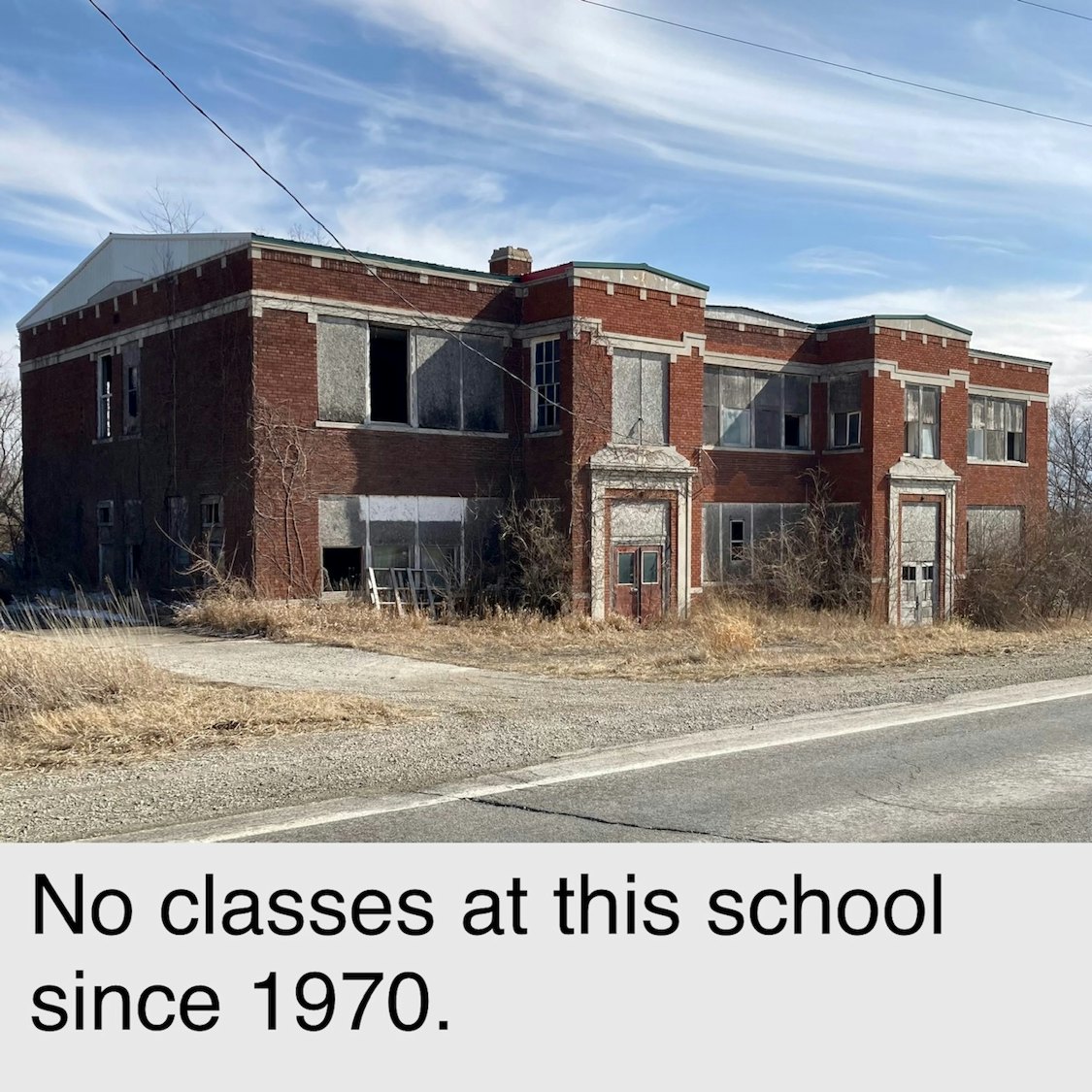
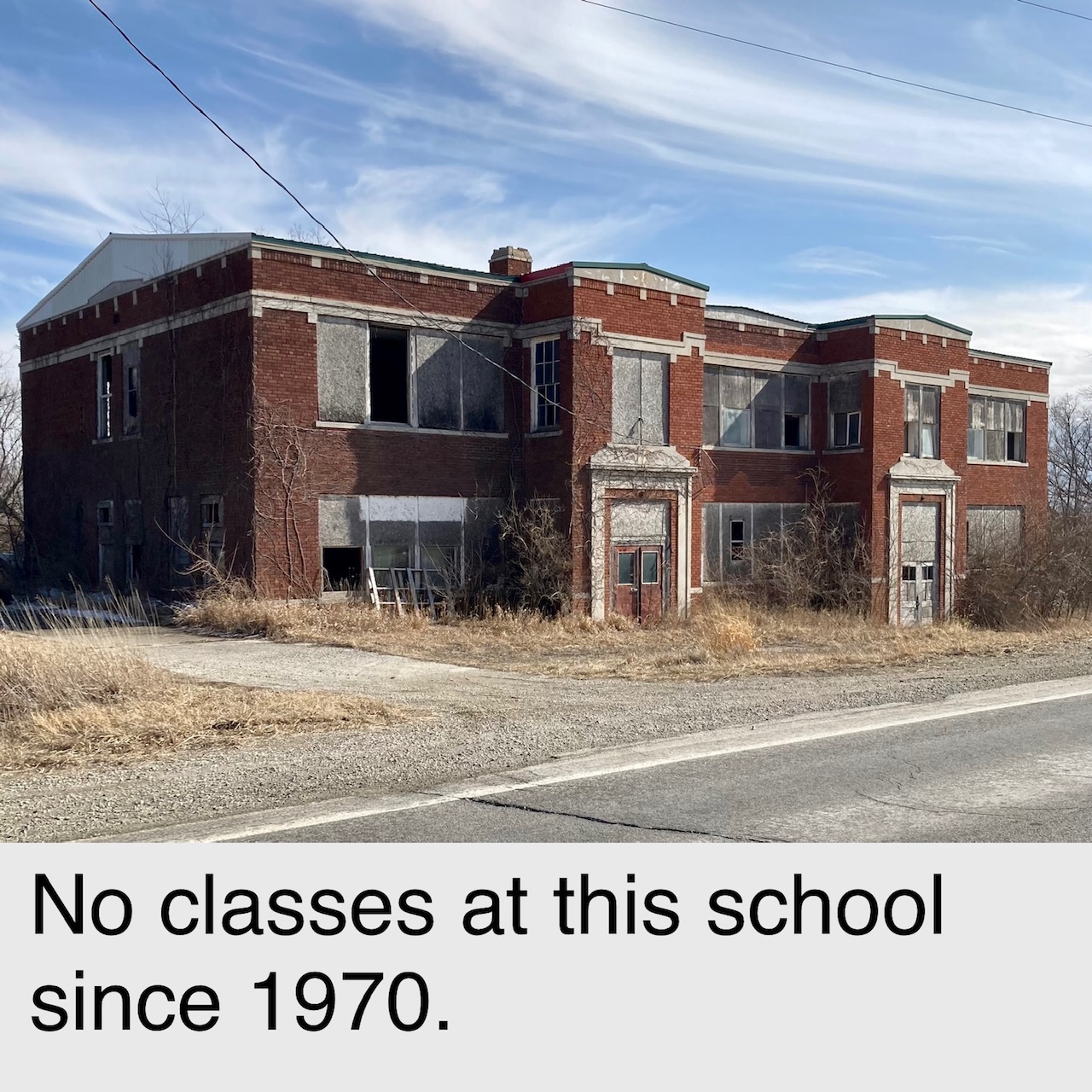
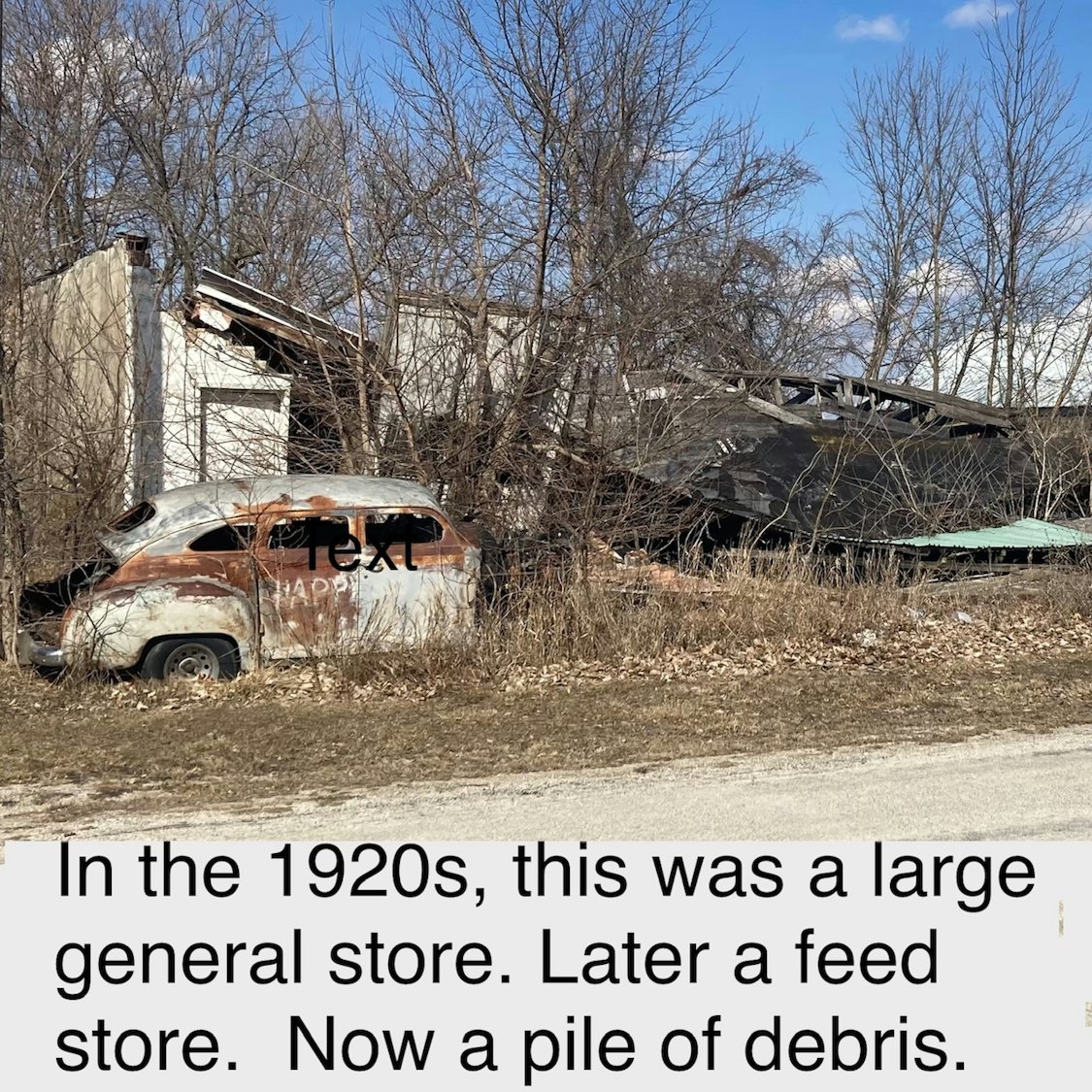
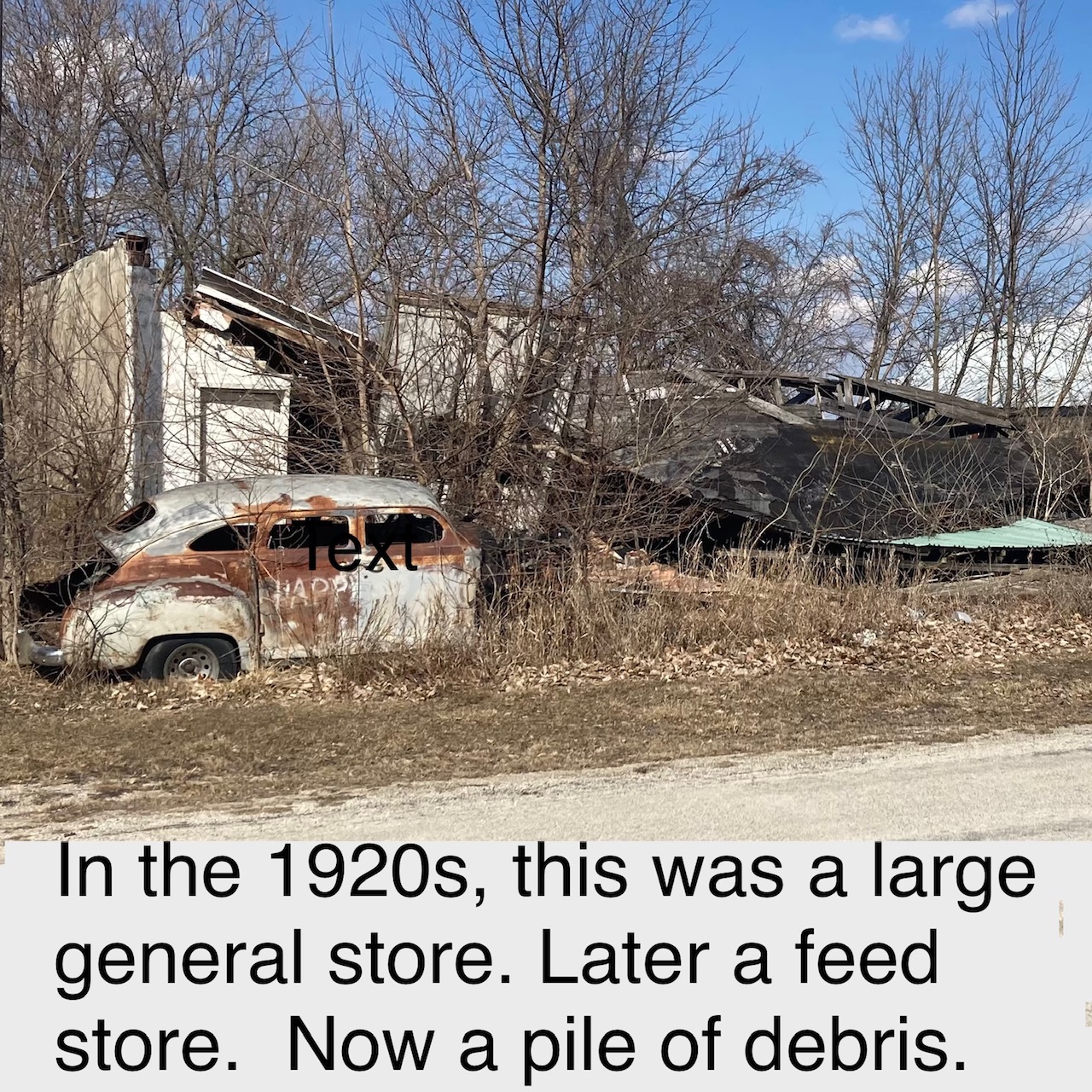

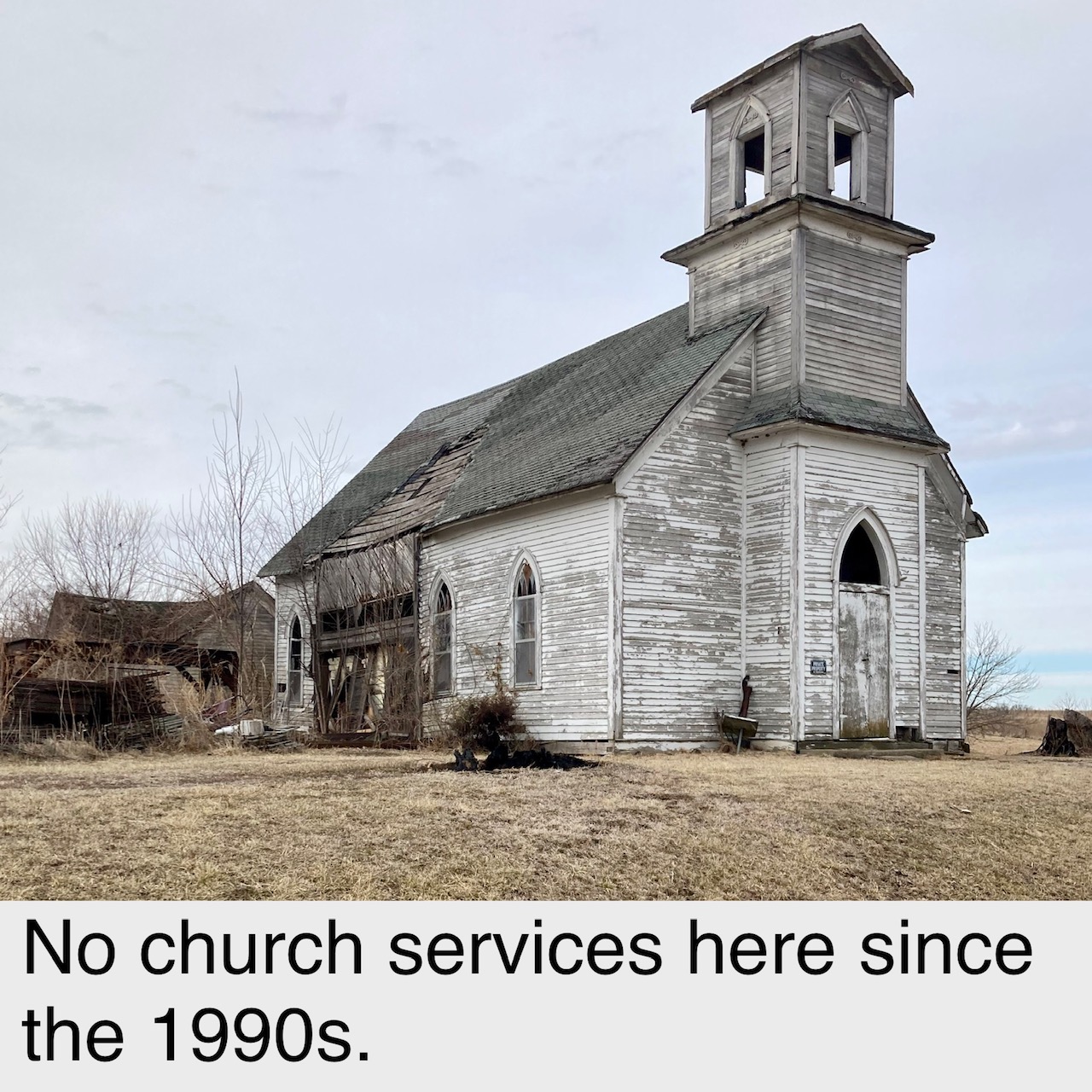
And to those who say that I just cherry-picked a few scenes, I would suggest that you go out to rural Iowa and look around. These scenes are so common that perhaps you don’t even notice them or think about what they represent.
In the case of Ringgold County (similar to many other counties), the population decline is a hundred years in the making, and exponential growth in corn production didn’t prevent or reverse the loss of population.
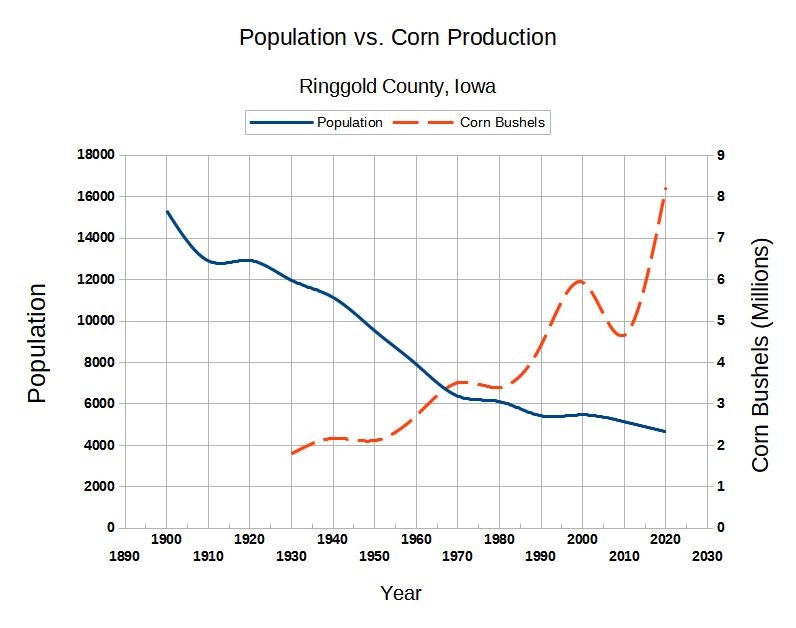
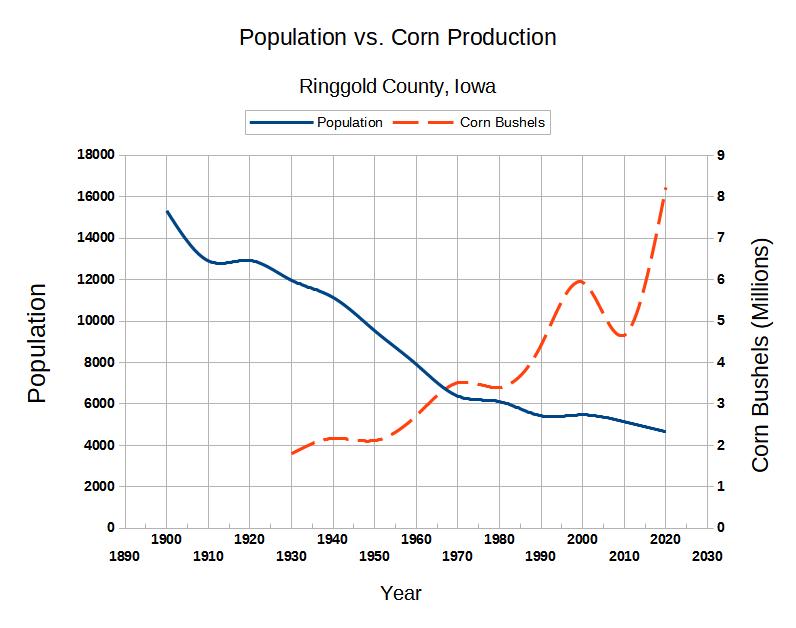
The must-have pipeline that Ketzner champions is just the latest in a long line of must-haves for corn production and profitability: bigger equipment, bigger farms, more chemicals, more fertilizers, genetically-modified crops, price supports, crop insurance, concentrated livestock feeding, and ethanol production. But the result is always the same: more corn, less rural vitality.
The Iowa Corn Growers Association has a clever little slogan: “We like to say Iowa grows corn, but the truth is—Corn Grows Iowa.” For big chunks of the state, where increased corn production has corresponded to decades of decline, a more accurate corn industry slogan for Iowa might be: “We’ve got you hooked, junkie.”
And they’re counting on the devastated junkie to buy the next hit: in this case, the CO2 pipelines.
All photos by Don Ray, published with permission.

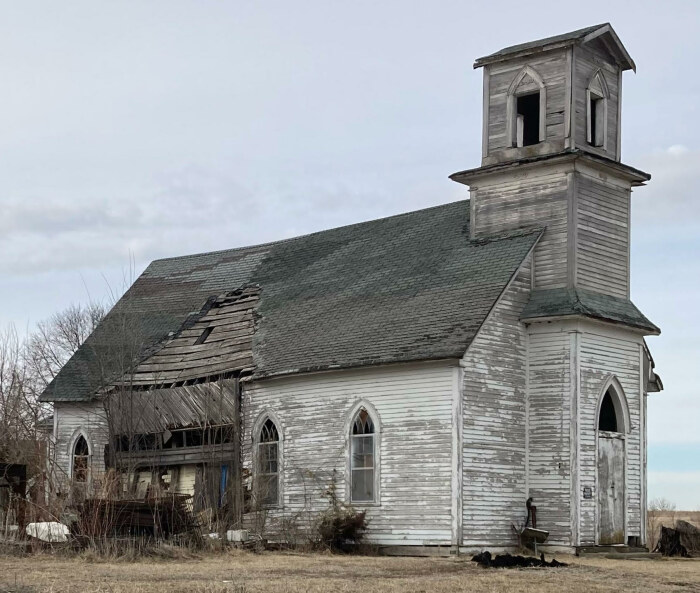
2 Comments
Well written
I do see more grass waterways from I80 DM to Iowa City. I hope that’s the picture statewide. As a city resident? I worry about the availability and cost of clean water. And list topsoil. The farmers a 100 years from now won’t have soil to till.
iowagerry Wed 15 Mar 3:36 PM
Good essay, thank you, Don Ray
A lot can be said about the impacts of King Corn on Iowa. And taxpayers play a major role in supporting the current system.
For anyone interested, Chris Jones of the U of I has an erudite informative blog about Iowa agriculture and water quality. I would love to see a (might-need-to-be-anonymous) frank essay from someone within the system at ISU, where I’ve been told the issue of farm pollution must be handled very carefully. Someone I knew changed jobs within ISU for that reason — didn’t want to deal with the red-hot politics of it anymore.
PrairieFan Thu 16 Mar 10:42 AM